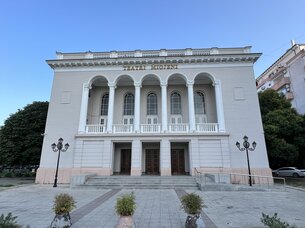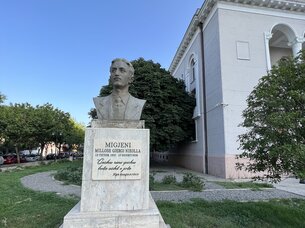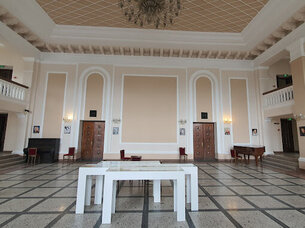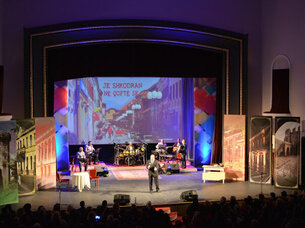Migjeni Theatre
About
The Migjeni Theater (Teatri Migjeni) is a prominent cultural institution located in the city of Shkodra, Albania.
Location: The Migjeni Theater is situated in the center of Shkodër, the largest city in northern Albania. It occupies a central position within the city's cultural landscape.
History: The theater was named after the renowned Albanian poet and writer, Migjeni (real name Millosh Gjergj Nikolla), who is celebrated for his contributions to Albanian literature. The theater was established in the mid-20th century and has since played a significant role in the cultural life of Shkodër and Albania as a whole.
Architecture: The Migjeni Theater building features a modern architectural design, reflecting the cultural aspirations of the city. It has a spacious auditorium with seating for audiences to enjoy various performances, including plays, concerts, and other cultural events.
Cultural Events: The theater hosts a diverse range of cultural events throughout the year, including theatrical performances by local and international theater groups, musical concerts, dance performances, film screenings, and literary events. It serves as a hub for artistic expression and creativity in Shkodër.
Virtual Tour
Community Engagement: The Migjeni Theater actively engages with the local community, offering educational programs, workshops, and outreach activities to promote arts and culture. It provides opportunities for aspiring artists, actors, and performers to showcase their talents and participate in the vibrant cultural scene of Shkodër.
Tourism: For visitors to Shkodër, attending a performance at the Migjeni Theater offers a unique opportunity to experience Albanian culture and entertainment firsthand. The theater's central location makes it easily accessible to tourists exploring the city's attractions.
Overall, the Migjeni Theater is a symbol of cultural pride and heritage in Shkodër, serving as a platform for artistic expression, creativity, and community engagement. It continues to play a vital role in shaping the cultural identity of the city and enriching the lives of its residents and visitors alike.




